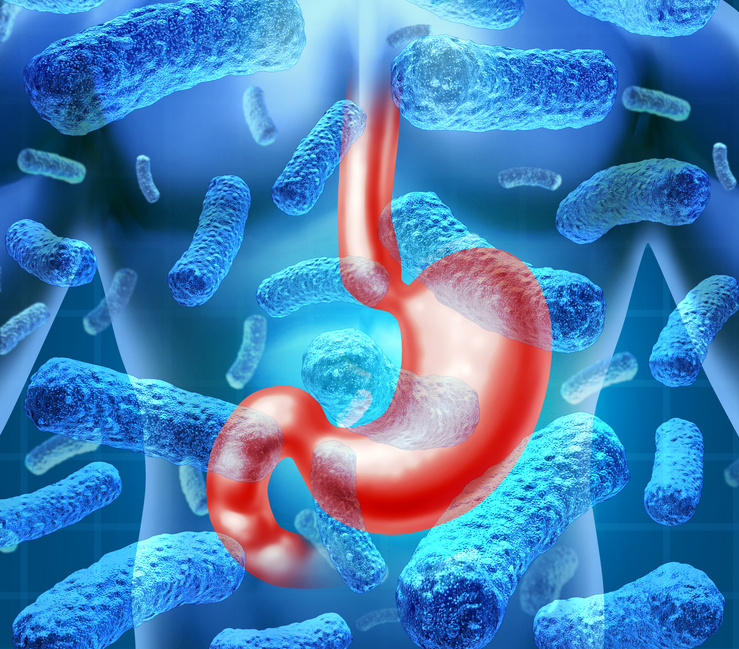ATYPICAL GERD CHRONIC COUGH
While most people experience occasional acid reflux, some people may develop a more serious form of acid indigestion. This is known as gastroesophageal reflux disease, or GERD. GERD patients experience persistent reflux that occurs more often than twice a week.
Many people with GERD have daily symptoms that, over time, can lead to more serious health problems. The most common symptom of acid reflux is heartburn, a burning sensation in the lower chest and middle abdomen. Some adults may experience GERD without heartburn and may experience additional symptoms such as asthma, difficulty swallowing, or a chronic cough.
GERD and Persistent Coughing
GERD is one of the most common causes of a persistent cough. In fact, it’s estimated that GERD is solely responsible for between 20 and 40 percent of all cases of chronic cough. The majority of patients with a GERD-induced cough don’t exhibit classic symptoms of the disease like heartburn. Chronic cough can be caused either by acid reflux or sometimes by the reflux of non-acidic stomach contents.
Symptoms of a GERD-induced Cough
Some clues as to whether a chronic cough is caused by GERD include:
• a non-productive cough that occurs mostly during the day while you’re in an upright position
• a persistent cough that occurs even when common causes are absent, such as smoking or taking medications (like ACE inhibitors) in which coughing is a side effect
• coughing without asthma or postnasal drip, or when chest X-rays are normal
• Testing for GERD in Patients with Chronic Cough
Non-heartburn symptoms make GERD more difficult to diagnose. This is because acid reflux isn’t the most common cause of symptoms such as chronic cough. Also, GERD often doesn’t show up in non-invasive radiologic tests such as the barium swallow—the most commonly used test for GERD—in patients with atypical symptoms.
Another way to find out whether a cough is GERD-related is to go on proton pump inhibitors (PPIs) for a period of three months to see if symptoms resolve. Proton pump inhibitors include medications such as Nexium, Prevacid, and Prilosec, among others.
The best test for GERD in patients with chronic cough is the 24-hour pH probe, which monitors esophageal pH. Another test, known as MII-pH, can detect non-acid reflux as well. However, both of these tests are more invasive, more expensive, and generally not as available as the barium swallow.
GERD in Children
Most infants experience acid reflux during their first year of life. Normal symptoms include frequent spitting up or vomiting in infants who are otherwise happy and healthy. However, infants who experience acid reflux after one year may have GERD. Frequent coughing is one of the main symptoms in children with GERD. Additional symptoms may include:
• heartburn
• repeated vomiting
• laryngitis
• asthma
• wheezing
• pneumonia
• Infants and young children with GERD may:
• refuse to eat
• become irritable
• experience poor growth
• arch their backs during or immediately following feedings
Risk Factors
If you smoke, are obese, or are pregnant, you’re at greater risk for developing GERD. Eating certain foods also can exacerbate GERD. These foods include:
• alcoholic beverages
• caffeinated beverages
• chocolate
• citrus fruits
• fried and fatty foods
• garlic
• mint and mint-flavored things (especially peppermint and spearmint)
• onions
• spicy foods
• tomato-based foods including pizza, salsa, and spaghetti sauce
Treatments
Lifestyle Changes:
Often, lifestyle changes will be enough to reduce or even eliminate a chronic cough and other symptoms of GERD. These changes include:
• avoiding foods that make symptoms worse
• avoiding lying down for three hours after meals
• eating frequent, smaller meals
• losing excessive weight
• quitting smoking
• raising the head of the bed between six and eight inches (extra pillows don’t work)
• wearing loose-fitting clothing to relieve pressure around the abdomen
Medications
Medications—especially PPIs—are generally effective in treating symptoms of GERD. Other medications that may help include:
antacids (such as Alka-Seltzer, Maalox, Rolaids, or Tums)
foaming agents like Gaviscon (which reduces stomach acid by delivering an antacid with a foaming agent)
H2 blockers, such as Pepcid AC and Tagamet HB (which decrease acid production)
prokinetics like Reglan (which helps the stomach empty more quickly but has frequent side effects, including anxiety, depression, and fatigue)
Surgery
Surgery can be an effective treatment for those who don’t respond well to either lifestyle changes or medications.
If symptoms persist call Gastrocure in West Orange, NJ at 973-736-1112 to schedule an appointment


